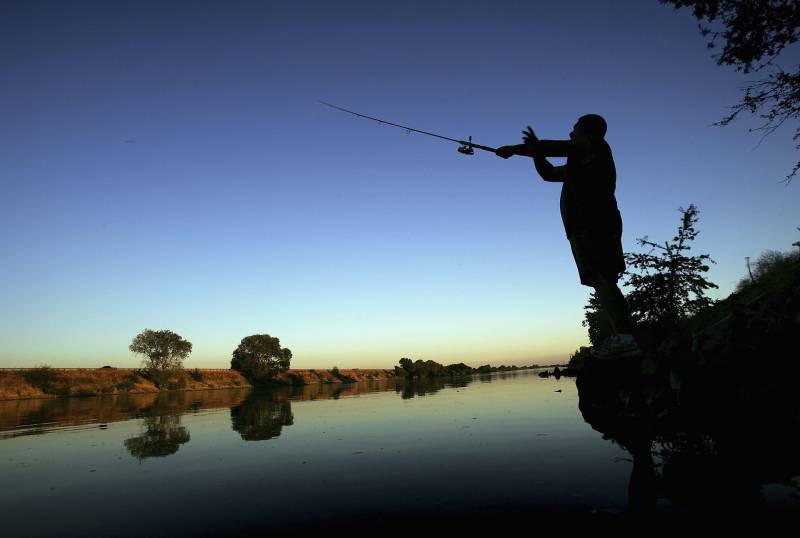But the federal government finalized the new rules this week.
On the issue of the environment, California is trouncing the Trump administration in the courts, at least so far.
Yet, when President Trump visited Bakersfield this week to promote his California water plan in front of a friendly crowd of Central Valley conservatives and farmers, Newsom took heat for not standing up to the president on the issue sooner.
Newsom’s critics say the governor’s office has been complicit in weakening protections for waterways and wildlife.
“They’re not doing enough, and, in fact, they’re hand in glove with the Trump administration,” Jon Rosenfield, the environmental advocacy group San Francisco Baykeeper, told the San Francisco Chronicle this week.
Trump traveled to Bakersfield on Wednesday to celebrate his plan before a jubilant crowd.
“We’re going to get you your water and put a lot of pressure on your governor,” Trump told the crowd. “And, frankly, if he doesn’t do it, you’re going to get a new governor.”
Newsom responded on Thursday with a lawsuit, filed in partnership with state Attorney General Xavier Becerra.
“California won’t silently spectate as the Trump Administration adopts scientifically-challenged biological opinions that push species to extinction and harm our natural resources and waterways,” Becerra said.
The lawsuit, filed in federal court in San Francisco, challenges the actions of the U.S. Bureau of Reclamation.
U.S. Interior Secretary David Bernhardt, who oversees the bureau, warned Thursday night of unpredictable consequences that could result from the lawsuit.
“The governor and attorney general just launched a ship into a sea of unpredictable administrative and legal challenges regarding the most complex water operations in the country, something they have not chartered before,” Bernhardt said in a statement. “Litigation can lead to unpredictable twists and turns that can create significant challenges for the people of California who depend on the sound operation of these two important water projects.”
Wednesday, the U.S. Department of the Interior touted the new rules for pledging $1.5 billion of federal and state funds over the next 10 years to restore habitat for endangered species, scientific monitoring of the rivers and improvements to fish hatcheries.
But state officials say the rules would mean less water in the rivers, which would kill more fish. In particular, the low flows would hurt chinook salmon and steelhead trout, which once a year return to the freshwater rivers from the Pacific Ocean to spawn.
The state’s lawsuit says the federal government did not properly analyze the rules to see if they would “tip a species toward extinction.”
Last year, a KQED investigation found that the Trump administration ordered federal biologists to speed up critical decisions about whether to send more water from Northern California to farmers in the Central Valley.
Environmentalists and research scientists said the rushed science threatened the integrity of the process and cut the public out.
Lawsuits over water in California are common, but it’s something the Newsom administration has been trying to avoid. For the past year, state regulators have been negotiating with water agencies on a set of voluntary agreements to set water quality standards in the delta. Newsom hopes these agreements, if they are ever reached, would avoid decades of lawsuits that have plagued prior water regulations.
The lawsuit announced Thursday could put those agreements in jeopardy. A representative for the State Water Contractors declined to comment on the lawsuit, but pointed to the group’s previous comments where General Manager Jennifer Pierre said they were “disappointed” the two sides could not compromise.
“We are concerned about the impact any litigation may have on the Voluntary Agreements process,” Pierre said at the time.
Thursday, Newsom said his goal remains to “realize enforceable voluntary agreements.”
“This is the best path forward to sustain our communities, our environment and our economy,” the governor said.
Kevin Stark of KQED contributed to this post.

